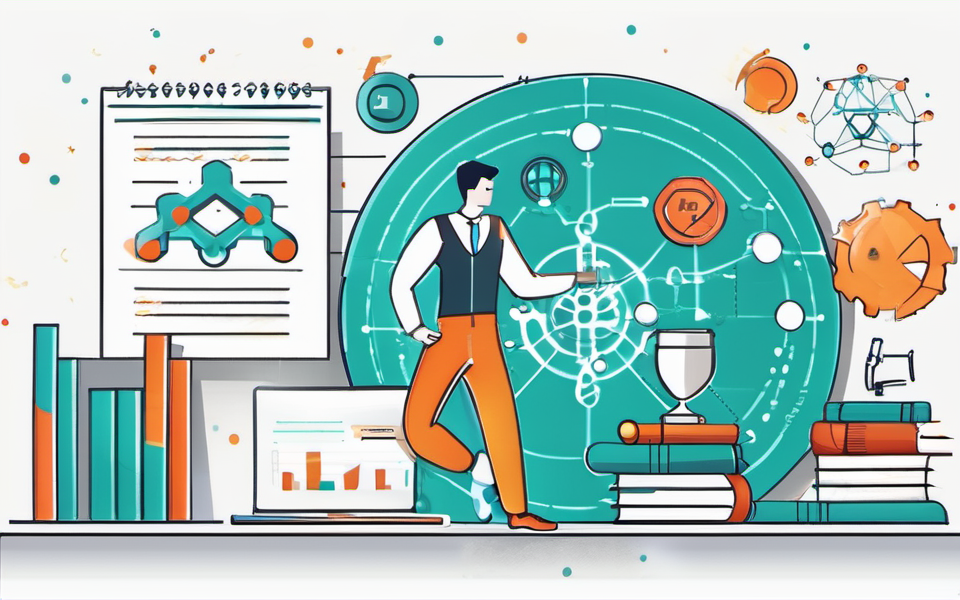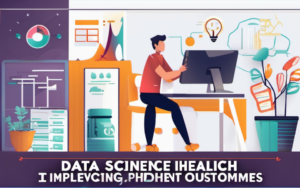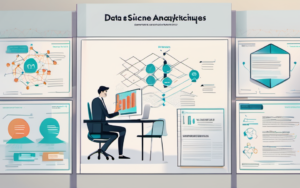Imagine diving into a treasure hunt where every clue unravels secrets hidden deep within piles of data. This is what the world of data science feels like. Ready for the adventure? Let’s embark on a journey through the fascinating universe of data science and uncover its mysteries together!
What is Data Science?
Data science is like being a detective, but instead of solving crimes, you solve complex problems using data. Think of it as turning ordinary numbers and facts into extraordinary insights that can change how businesses, governments, and even we, understand the world.
At its core, data science involves collecting vast amounts of data from various sources. These sources can be anything from social media posts, shopping habits, to even the temperatures recorded by weather stations. The data scientist’s job is to make sense of this mountain of information, looking for patterns and trends that can tell a story or solve a problem.
Using techniques from statistics, computer science, and machine learning, data scientists can predict future trends, understand customer behaviors, and recommend new products or services. For instance, when you get a movie recommendation on Netflix, it’s data science at work!
How to Get Started with Data Science?
Getting started with data science is like learning a new language. You need to understand the basics before diving into more complex topics. Firstly, familiarize yourself with the key tools and programming languages commonly used in the field, such as Python and R. These languages are essential for analyzing data and building models.
Next, embrace the world of statistics and mathematics. These subjects are the backbone of data science, helping you understand data distributions, probability, and statistical tests. Online courses, tutorials, and textbooks can be your best friends here.
Participating in data science projects and competitions can provide practical experience. Websites like Kaggle offer real-world datasets and problems for you to work on, making the learning process engaging and hands-on. Finally, network with other data enthusiasts and professionals through forums, meetups, and conferences. Learning from others’ experiences is invaluable.
Essential Tools for Data Science
The toolbox of a data scientist is quite unique and equipped with several handy gadgets. One of the most popular tools is Python, a versatile programming language known for its simplicity and readability. With libraries like Pandas for data manipulation, NumPy for numerical operations, and Matplotlib for data visualization, Python becomes a powerhouse for any data enthusiast.
Another powerful tool is R, especially useful for statistical analysis and visualization. R provides extensive packages like ggplot2 for elegant visualizations and dplyr for data manipulation. Both Python and R have strong communities, offering immense resources and support for beginners and professionals alike.
Additionally, SQL (Structured Query Language) is essential for querying and managing data stored in databases. Mastering SQL allows you to efficiently extract the precise data you need for your analysis. Finally, tools like Jupyter Notebooks provide an interactive environment to write, visualize, and share your code, making it easier to document your data science journey.
Applications of Data Science
The applications of data science are vast and diverse, impacting various sectors. In healthcare, data science is revolutionizing how diseases are detected and treated. Predictive models can forecast outbreaks, while personalized medicine tailors treatments to individual patients based on their genetic makeup and medical history.
In the business world, companies use data science to optimize operations, enhance customer experiences, and increase profits. Retailers can analyze shopping behaviors to manage inventory better, while marketing teams can design targeted campaigns based on consumer preferences and habits.
Furthermore, in the realm of technology, data science drives innovations like self-driving cars, speech recognition, and recommendation engines. Governments leverage data science to make informed policy decisions, improve public services, and tackle issues like urban planning and crime prevention. The possibilities are endless, making data science an exciting field with the potential to make a significant impact on society.




